IASC Briefings
The IASC secretariat organizes regular briefings to raise awareness around critical decisions, policies, and tools agreed by the IASC. It is also an opportunity to capture perspectives from stakeholders, including front-line responders, that are critical in shaping global deliberations and decisions.
We welcome you to join us!
![]()
IASC Briefing: Launch of IASC Climate Crisis Roadmap
This briefing will focus on launching the IASC Climate Crisis Roadmap and discussing its implementation at national, regional and global level through the six priority areas for IASC collaborative action. It aims to provide a platform for IASC members and their partners to explore emerging issues related to the climate crisis, share experiences, and identify opportunities for improved coordination and action. 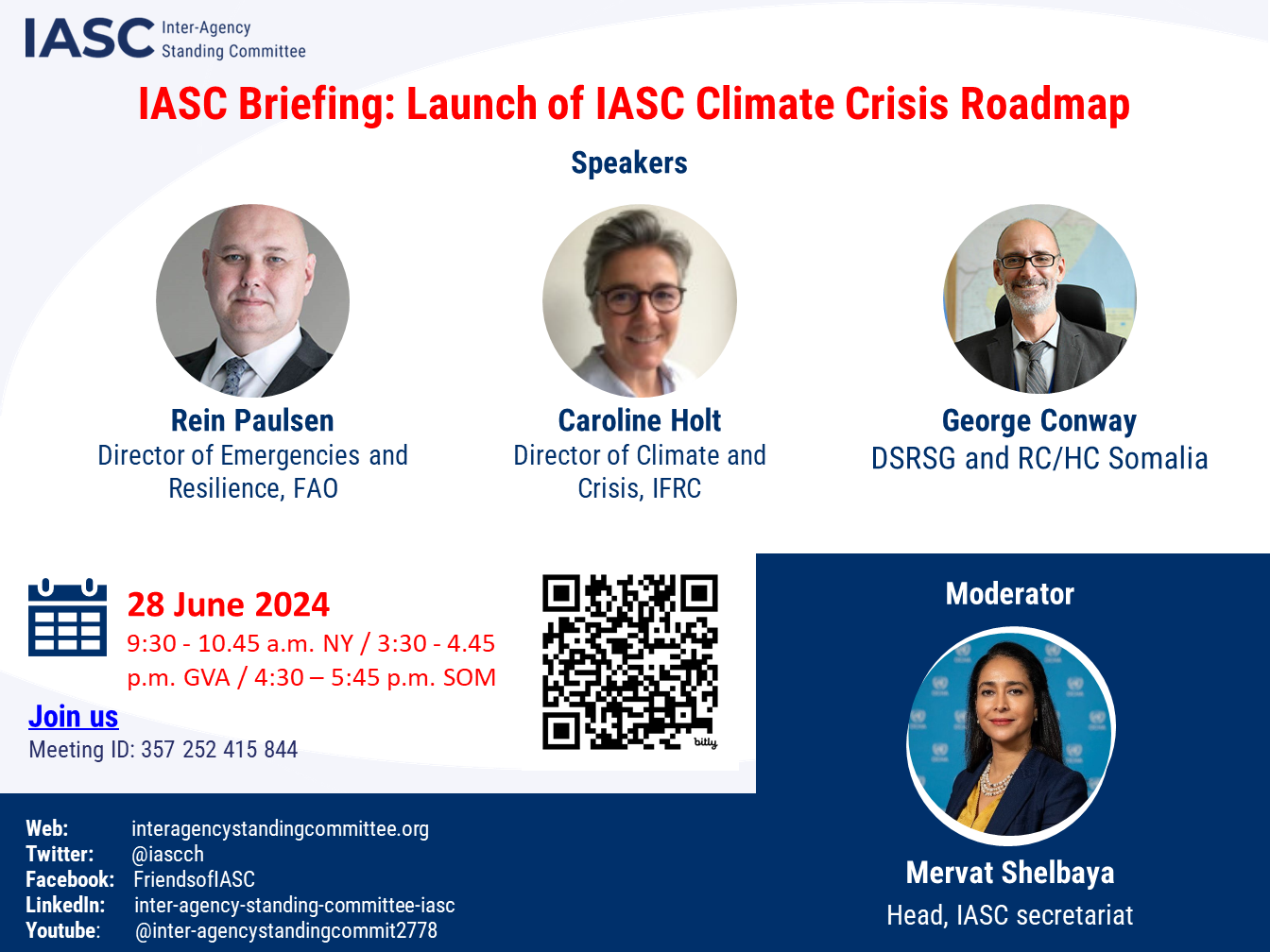
We look forward to your participation and joining us.
IASC Briefing on Obligations of Occupying Powers
Wednesday, 22 May 2024
The aim of this briefing is to shed light on the obligations of occupying powers and to consider their application in humanitarian crises, particularly as it pertains to meeting the essential needs of civilians - including protection and assistance.
Feel free to Share your Questions now or during the briefing and to Register.

We look forward to your participation and joining us.
IASC Briefing on ECOSOC Humanitarian Affairs Segment, Inter-Governmental Processes and Humanitarian Resolutions
Thursday, 25 April 2024

Photo credit: UN Photo/Manuel Elias
The briefing will be an opportunity to provide an update and coordinate on the ECOSOC Humanitarian Affairs Segment (25-27 June 2024) and the ECOSOC Meeting on the TRansition from Relief to Development (24 June 2024), which come at an important time. This will also include a brief update on the current intergovernmental processes and negotiations, including on the humanitarian aspects of the Summit of the Future Pact negotiations.
Speakers
Ms. Anastasia Carayanides, Chief, Inter-Governmental Policy Section, Office for the Coordination of Humanitarian Affairs (OCHA
IASC Operational Briefing on Mozambique with Dr. Catherine Sozi, Resident and Humanitarian Coordinator
Monday, 15 April 2024
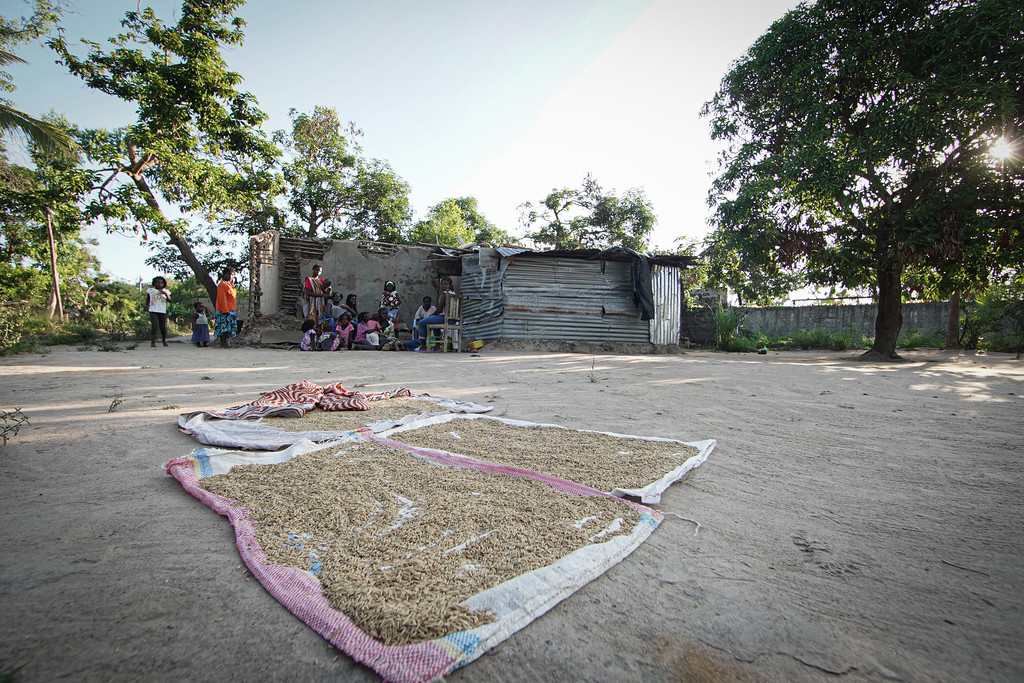
Photo credit: UNOCHA/Charlotte Cans
The briefing will be an opportunity for an interactive exchange with IASC members on the humanitarian situation and operational priorities in Mozambique.
Speakers:
Dr. Catherine Sozi, Resident and Humanitarian Coordinator in Mozambique
Moderator:
- Ms. Mervat Shelbaya, Head of the IASC secretariat
IASC Briefing on Protecting Education in Emergencies
Tuesday, 19 March 2024
Armed conflict has a devastating impact on children’s access to education, as well as affecting students’ and teachers’ health and socio-emotional wellbeing in a variety of ways. In many conflicts, schools are attacked, looted, and used for military purposes. Students, teachers, and other education personnel are often threatened, abducted, attacked, or prevented from accessing classrooms.
International humanitarian law and international human rights law provide the legal framework that governs the protection and provision of education in armed conflict. Notable other efforts to protect education during armed conflict include the Safe Schools Declaration – which has been endorsed by 119 States – and the accompanying Guidelines for Protecting Schools and Universities from Military Use. The Paris Principles and Commitments, launched in 2007, also highlight the importance of education both for preventing children from being associated with armed forces or armed groups, and for re-integrating those that have been previously associated.
However, ensuring that all countries follow these international rules and commitments remains a significant challenge, as does holding accountable those responsible for attacks on education.
The briefing will be an opportunity to discuss the criticality of protecting education from attack, the entities operating in this domain, the norms protecting education, as well as about what more needs to be done to save lives and protect education from attack.
Speakers
- USG Virginia Gamba, Special Representative on Children and Armed Conflict
- Ms. Yasmine Sherif, Executive Director of Education Cannot Wait (ECW)
- Ms. Suzanna Tkalec, Deputy Humanitarian Coordinator, Democratic Republic of Congo
- Ms. Samarre Marcelin Tecier, Youth Representative, Haiti
- Ms. Mina Bakshi, Youth Representative, Afghanistan
Moderator
- Ms. Mervat Shelbaya, Head of Inter-Agency Standing Committee (IASC) secretariat
IASC Briefing on Inter-Governmental Processes and Humanitarian Resolutions
Thursday, 29 February 2024

Photo credit: UN Photo/Manuel Elias
The briefing will be an opportunity to provide an update and coordinate on the Meeting on the Transition from Relief to Development (18 June 2024) and the ECOSOC Humanitarian Affairs Segment (19-21 June 2024) which come at an important time, and with a brief update on the current intergovernmental processes and negotiations.
Speakers
Ms. Anastasia Carayanides, Chief, Inter-Governmental Policy Section, Office for the Coordination of Humanitarian Affairs (OCHA
IASC Briefing on Environmental Responsibility in Humanitarian Operations
Tuesday, 13 February 2024

Photo credit: UN Photo/ JC Mcllwaine
Humanitarian organizations are increasingly faced with the need to reduce their environmental footprint. The present “triple planetary crisis”, namely climate change, pollution, and biodiversity loss, is eroding the foundations of sustainable development and wellbeing, escalating conflict and driving humanitarian needs, with impacts more visible in the global south.
The recently endorsed IASC Guidance on Environmental Responsibility in Humanitarian Operations was developed following a request by the United Nations (UN) Executive Committee to the Inter-Agency Standing Committee (IASC) to offer guidance and lessons learned for improving environmental responsibility in UN emergency and humanitarian operations. The guidance was developed under the coordination of the UN Office for the Coordination of Humanitarian Affairs (OCHA) and the United Nations Environment Programme (UNEP) with the participation of the International Committee of the Red Cross (ICRC), the Catholic Agency for Overseas Development (CAFOD), the UN Refugee Agency (UNHCR), the International Organization for Migration (IOM) and the World Food Programme (WFP). The guidance describes why environmental responsibility is an important element of humanitarian action, summarizing relevant environmental management approaches and practices that help to address a humanitarian organization’s environmental impacts.
This briefing will showcase how humanitarian organizations are applying environmental management approaches within their operations and transforming their delivery models to become more environmentally responsible.
Speakers
- Mr. Bruno Jochum, Executive Director, Climate Action Accelerator
- Ms. Mary Jelliti, Deputy Global Logistics Cluster Coordinator
- Mr. André Krummacher, Vice CEO Programmes, Impact and Accountability, ACTED
Moderator
Ms.Mervat Shelbaya, Head of Inter-Agency Standing Committee (IASC) secretariat
IASC Briefing on Inter-Governmental Processes and Humanitarian Resolutions
Thursday, 18 January 2024

Photo credit: UN Photo/Manuel Elias
The briefing will be an opportunity to provide an update on the intergovernmental processes and the negotiations of a number ofhumanitarian resolutions resolutions during the 78th session of the UN General Assembly and to a look ahead to the intergovernmental agenda in 2024.
Speakers
Ms. Anastasia Carayanides, Chief, Inter-Governmental Policy Section, Office for the Coordination of Humanitarian Affairs (OCHA
IASC Briefing on Accountability to Affected People (AAP) in Action
Tuesday, 31 October
An accountable humanitarian system, where more decision-making power is in the hands of those affected by crises, is central to principled humanitarian action. Accountability to Affected People (AAP) ensures this action protects and restores human dignity and agency, remains relevant and effective, and leaves no one behind.
AAP has been part of the humanitarian reform agenda for the last three decades. During that time, individual agencies, and the humanitarian sector as a whole, have made progress to improve and increase community engagement in country operations and through global commitments, guidance and tools. Despite this, communities continue to report that the humanitarian system needs to better engage them in decision-making, and, fundamentally, act on their feedback and needs to deliver community-led, relevant, dignified and timely responses. Operational leadership, and humanitarian practitioners alike, have also noted that despite commitments, knowledge of good practices has been a key barrier for collective approaches to become more widely adopted.
The aim of this IASC Briefing is to address this gap and showcase efforts to ensure that AAP commitments are operationalised into action. Among these efforts are a number of workshops which have been held for humanitarian country teams in various operations, including Afghanistan, Bangladesh, Ethiopia, Lebanon, South Sudan and Syria (Cross Border) with a focus on operationalizing accountability to affected people in humanitarian programming. There have also been practical resources and tools developed, such as the collective AAP framework, the review of donor AAP commitments, requirements and recommendations, the Accountability and Inclusion Helpdesk, and a guidance note on data responsibility and AAP in humanitarian action, among others. The discussion will bring forward some of these best practices and provide a space for discussion on what more needs to be done.
Speakers
- Ms. Christelle Kalhoule, Regional Director, West Africa, Children Believe
- Ms. Mahpekai Sediqi, Director of Kabul Orthopedic Organization & Co-chair, Disability Inclusion Working Group, Afghanistan
- Ms. Mireia Villar Forner, Humanitarian Coordinator for Colombia
- Ms. Tanya Wood, Executive Director, CHS Alliance and co-chair of IASC Task Force 2 on Accountability to Affected People (AAP)
Moderator
- Ms. Samantha Newport, Deputy Head of IASC secretariat
IASC Briefing on the Climate Crisis
Tuesday, 12 September

The evidence of climate change's impacts is undeniable. It is imperative for humanitarian actors, donors, and partners to actively participate in climate action. We must adopt a more transformative approach, fostering integration in our thoughts and actions, embracing anticipation, and cultivating long-lasting and inclusive interactions with local governments and communities.
To combat this worsening situation, the IASC Deputies decided in June 2022 to establish a time bound technical group – the IASC Climate Sub-Group - to outline the role the IASC should play in addressing the climate crisis, considering its comparative advantage both as a collective and through its individual members. The IASC Climate Sub-Group has developed an IASC Action Plan for COP28 to galvanize humanitarian engagement with the broader climate change policy agenda by enabling coordinated engagement in the UNFCCC processes, particularly towards COP28. It has also developed IASC Key Messages on Averting, Minimizing and Addressing Loss and Damage from a Humanitarian Perspective, which are intended to serve as a baseline for humanitarian organizations, providing a foundation for external advocacy efforts regarding loss and damage.
The aim of this IASC briefing is to raise awareness and understanding about the urgent challenges posed by climate change to affected communities and to foster collaboration in addressing its multifaceted impacts. It also aims to provide a platform for information sharing, knowledge exchange, and dialogue, enabling participants to explore innovative approaches, identify best practices, and develop joint strategies for effective climate action within the humanitarian and development sectors.
Speakers
- Dr. Matthias Garschagen, Vice Dean, Faculty of Geosciences at the Ludwig Maximilian University and Lead Author, IPCC Sixth Assessment Report
- Ms. Mary-Ellen McGroarty, WFP Country Representative and HC a.i., South Sudan
- Dr. Jerry Chandler, Direction-Generale de la Protection Civile, Haiti
- Ms. Kirsten Hagon, co-Chair of the IASC Climate Crisis Sub-Group
Moderator
- Ms. Mervat Shelbaya, Chief of the IASC secretariat
IASC Briefing on the Humanitarian Exemption to UN Sanctions Regimes: Implementation and Reporting
Thursday, 20 July
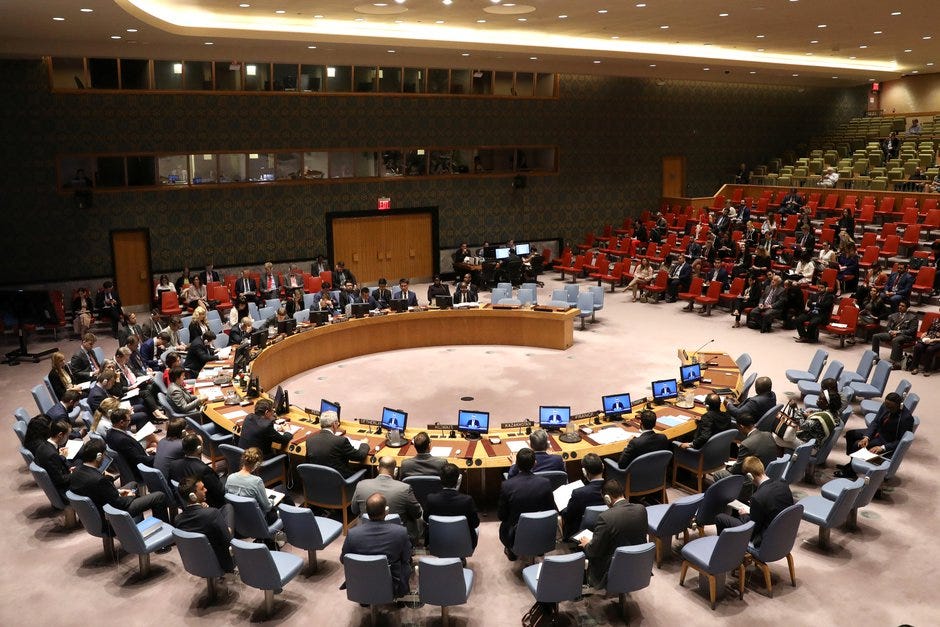
(Photo Credit: InterAction)
On 9 December 2022, the United Nations Security Council passed resolution 2664, adopting a “humanitarian carve-out” — a standing humanitarian exemption — to assets freezes in currently active and future United Nations Security Council sanctions regimes. This was the results of years of advocacy by the humanitarian community and the leadership of the U.S. and Ireland who co-drafted the resolution. The carveout-out is open-ended, except for the Al-Qaeda-ISIL sanctions regime ('1267 regime’) – the Security Council will decide in December 2024 whether to extend or renew its application to this regime.
The resolution directs the Emergency Relief Coordinator (ERC) to brief relevant sanctions committees annually about the delivery of humanitarian assistance and activities in support to basic human needs in contexts where this humanitarian exemption applies, including any obstacles, any available information on the transfer of resources to or for the benefit of UN sanctioned actors, aid and fund diversion by the latter, and risk management and due diligence processes in place. OCHA country offices in contexts where UN sanctions apply are leading the coordination of information collection process to feed into the ERC’s briefings, in consultation with relevant Humanitarian Country Teams and partners in-country.
The briefing will aim to raise awareness on the resolution and its implications for the humanitarian community. It will also serve to clarify the reporting requirement under UNSCR 2664 to ensure broad understanding and participation to the process. The briefing is aimed at the humanitarian community broadly, particularly those who may be directly involved in providing inputs to OCHA, including the legal, risk/compliance, logistics, and programming experts of IASC member organizations to ensure broad understanding of the topic and allow for any questions. The invitation for the briefing will be channeled internally by TF members to their respective country offices and relevant colleagues and will also be circulated through IASC distribution lists, including donors.
Speakers
- Mr. Brady Mabe, Head of the Legal Department (ai), ICRC’s Permanent Observer Mission to the UN
- Mr. Aurelien Buffler, Chief of Section, OAD-PAPS, OCHA
- Ms. Berenice Van Den Driessche, Senior Humanitarian Policy and Advocacy Adviser, NRC
- Ms. Kathryn Striffolino, Senior Manager, Humanitarian Practice, Humanitarian Department, InterAction
Moderator
- Mr. Yasin Samatar, IASC secretariat
IASC Briefing: Operational Support and Policy Guidance for MHPSS Responses
Thursday, 15 June 2023
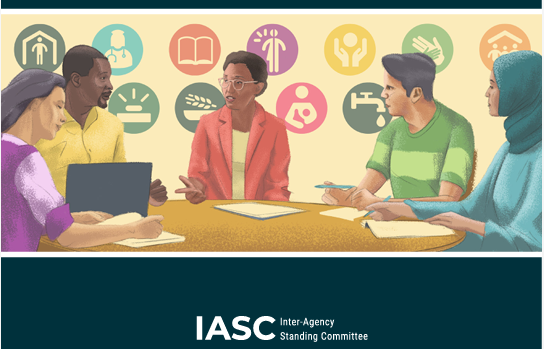
The reference group provides operational support through interagency MHPSS surge deployments, remote support to ongoing emergencies, and country support missions to acute emergencies. It also engages in global and country efforts to mainstream MHPSS in humanitarian response. Responding to needs indicated by humanitarian actors, the group has continued publishing tools related to the IASC almost every year since it was formed. In December 2022, the group released several new resources, namely:
IASC Guidance on Addressing Suicide in Humanitarian Settings, to support programme implementers, coordinators, and others humanitarian actors in addressing suicide and self-harm in humanitarian settings.
IASC Minimum Service Package Mental Health and Psychosocial Support, outlining the highest priority activities in meeting the needs of emergency-affected populations, based on existing guidelines, available evidence and expert consensus.
IASC Handbook, Mental Health and Psychosocial Support Coordination, providing standard guidance on how to best support well-coordinated and multisectoral MHPSS responses.
Anchored in recently published tools and guidance, the aim of this IASC briefing is to provide a forum for practitioners to exchange ideas, innovative approaches and operational considerations for implementing MHPSS. This would include showcasing ongoing efforts, deployments, and best practices in delivering MHPSS services in humanitarian settings.
Speakers
- Dr. Fahmy Hanna, Co-Chair of IASC MHPSS Reference Group, and Technical Officer, Department of Mental Health and Substance Abuse, World Health Organization (WHO)
- Dr. Carmen Valle Trabadelo, Co-Chair of IASC MHPSS Reference Group, and Reference Centre for Psychosocial Support, International Federation of Red Cross and Red Crescent Societies (IFRC)
- Dr. Alexandra Marcano, Co-chair of MHPSS technical working group (TWG), Venezuela, and Migration Health Officer, (IOM)
- Dr. Alisa Ladyk-Bryzghalova, Co-Chair of MHPSS TWG, Ukraine and Officer on Mental Health (WHO)
Moderator
- Ms. Tanja Schuemer-Cross, IASC secretariat
IASC Briefing on Inter-Governmental Processes and Humanitarian Resolutions
Thursday, 8 June 2023

Photo credit: UN Photo/Manuel Elias
The briefing will be an opportunity to update on the preparations for the Humanitarian Affairs Segment (to be held in Geneva, 21-23 June), and the preceding ECOSOC Meeting on the Transition from Relief to Development (20 June). This will include an update on ECOSOC HAS side events over the week of 19-23 June and on the negotiation of the ECOSOC humanitarian resolution.
Speakers:
- Ms. Anastasia Carayanides, Chief, Inter-Governmental Policy Section, with Office for the Coordination of Humanitarian Affairs (OCHA)
IASC Briefing on Inter-Governmental Processes and Humanitarian Resolutions
Monday, 15 May 2023

Photo credit: UN Photo/Manuel Elias
This briefing will be an opportunity to update on the preparations for the Humanitarian Affairs Segment (to be held in Geneva, 21-23 June), and the preceding ECOSOC Meeting on the Transition from Relief to Development (20 June). This will include an update on ECOSOC HAS side events over the week of 19-23 June. It will also include an update on the ECOSOC humanitarian resolution discussions.
Speakers:
- Ms. Anastasia Carayanides, Chief, Inter-Governmental Policy Section, with Office for the Coordination of Humanitarian Affairs (OCHA)
IASC Briefing on Inter-Governmental Processes and Humanitarian Resolutions
Wednesday, 12 April 2023

Photo credit: UN Photo/Manuel Elias
The briefing will be an opportunity to update on the preparations for the Humanitarian Affairs Segment (to be held in Geneva, 20-23 June) and the preceding meeting on the Transition from Relief to Development (20 June). There will also be an update on this year’s Secretary-General’s report on strengthening the coordination of humanitarian assistance.
Speakers:
- Ms. Anastasia Carayanides, Chief, Inter-Governmental Policy Section, with Office for the Coordination of Humanitarian Affairs (OCHA)
IASC Briefing: Inter-Agency Humanitarian Evaluation (IAHE) on COVID-19 Response
Wednesday, 5 April 2023
The Inter-Agency Humanitarian Evaluation (IAHE) is an independent assessment of the preparedness and response of Inter-Agency Standing Committee (IASC) members to the COVID-19 pandemic from 2020-2022. It is the first-ever evaluation of the IASC humanitarian response to infectious disease events and to a global response. The evaluation provides feedback on the humanitarian response to COVID-19, identifies best practices and lessons learned, and highlights strategic and policy challenges and opportunities to improve responses to global crises in the future.
The global evaluation includes eight case studies (Bangladesh, Colombia, the Democratic Republic of the Congo, the Philippines, Sierra Leone, Somalia, Syria, and Turkey). The evaluation also includes two learning papers that provide a more in-depth analysis of two specific issues associated with the response Lessons Learned on Global Humanitarian Response Plan and Localization in the COVID-19 response.
The purpose of the briefing is to inform IASC staff on the key findings and recommendations of the IAHE COVID-19 and discuss actions needed to ensure that the IASC and its partners are better prepared to respond to the next pandemic.
Speakers
- Mr. Andy Featherstone, Evaluation Team Leader, IAHE on COVID-19
- Ms. Tasneem Mowjee, Senior Evaluator, IAHE on COVID-19
- Mr. Jameel Abdo, Chief Executive Officer, Tamdeen Youth Foundation
- Ms. Mireia Villar Forner, RC/HC Colombia
Moderator
- Ms. Mervat Shelbaya, Chief of IASC secretariat
IASC Briefing: Strengthening Country-Level PSEA Capacity, with a focus on the SEA Risk Overview
Wednesday, 4 April 2023
Sexual exploitation and abuse (SEA) is an extreme form of abuse of power, causing serious harm to the victims/survivors and their families and communities and undermining the work of the entire humanitarian community. With such damage increasingly evident, actors working across emergency, development and peace contexts are committed to ensuring that those in need can access assistance without fear of SEA. Critical to these efforts is raising awareness on protection from SEA (PSEA) among those engaged in humanitarian work at the frontline.
In 2022, The IASC Principals endorsed a five-year PSEAH Vision and Strategy for 2022-2026 that prioritizes operationalizing a victim-centred approach; promoting lasting change in organizational culture, behaviour and attitudes; a data-driven approach to PSEA and increasing country capacity in high-risk contexts. Much work is already ongoing, including a global mapping exercise that gathers data on PSEA progress at country level against on a core set of PSEA indicators to establish a baseline across priority countries that is actively tracked on a global dashboard displaying results of the mapping exercise, and the new PSEACap project. In addition, the beta version of the SEA Risk Overview was recently launched. This is a Composite Index that brings together indicators on a range of different factors that can influence the risk of SEA.
This briefing will be an opportunity to highlight the ongoing efforts to enhance the evidence-based approach to PSEA and accelerate PSEA progress at country level through showcasing the newly released beta version of the SEA Risk Overview and other tools and initiatives. The briefing will include:
- An update on progress towards the 2022-26 PSEAH Vision and Strategy
- An introduction to the SEA Risk Overview
- An update on the 2022 global mapping exercise of country progress on PSEA and the IASC PSEA Dashboard
Speakers:
- Mr. Craig Williams, Humanitarian Consultant, Co-founder of the Index for Risk Management (INFORM) initiative
- Ms. Maria del Carmen Rodriguez, IASC PSEA Risk Consultant, (UNICEF)
- Ms. Anne-Marie Connor, Special Advisor to the WVI President & CEO, IASC PSEAH Championship
- Ms. Marta Agosti, Inter-Agency PSEA Coordinator, OPT
Moderator
Ms. Wendy Cue, Senior IASC PSEA Coordinator
IASC Briefing on Inter-Governmental Processes and Humanitarian Resolutions
Wednesday, 1 March 2023

Photo credit: UN Photo/Manuel Elias
The briefing will be an opportunity to provide an update on the outcome of intergovernmental processes and the negotiations of a number of humanitarian resolutions and discuss the intergovernmental agenda for 2023. This will include a discussion on preparations for the Humanitarian Affairs Segment (to be held in Geneva, 20-23 June 2023). In addition, there will be an update on the preparation of this year’s Secretary-General’s report on strengthening the coordination of humanitarian assistance.
Speakers:
- Ms. Anastasia Carayanides, Chief, Inter-Governmental Policy Section, with Office for the Coordination of Humanitarian Affairs (OCHA)
Moderator:
- Ms. Isabelle de Muyser, Humanitarian Affairs Officer, Inter-Agency Standing Committee (IASC) secretariat
IASC Briefing: Extreme Heat and the Road to COP28
Tuesday, 28 February 2023

The impacts of climate change are being seen and felt around the world, bringing new and previously unimaginable challenges to people and communities. In recent decades, extreme heat has been labelled the ‘silent killer’ and has risen to become one of the deadliest disasters on record.
In October 2022, IASC members OCHA & IFRC released “Extreme Heat: Preparing for the Heatwaves of the Future”, describing how climate change is making heatwaves ever more dangerous, and that aggressive steps must be taken now to avert potentially recurrent heat disasters. This report is the first to be published jointly by OCHA and IFRC, and it offers concrete steps that humanitarians and decision makers can take to mitigate extreme heat’s worst effects. IASC members remain seized with the issue of climate change, and in the lead up to COP27, released key messages showcasing the humanitarian community’s priorities on the climate crisis.
The aim of this IASC briefing is to outline highlights from the recently released report by IASC members on extreme heat, and to reflect on both the outcomes of COP27 and the road to COP28, from the perspective of humanitarian practitioners.
Speakers:
• Ms. Violet Kakyomya, Humanitarian Coordinator, Chad
• Mr. Greg Puley, Head of Climate Team, Office for the Coordination of Humanitarian Affairs (OCHA)
• Mr. John Nairn, Senior Extreme Heat Advisor, World Meteorological Organization
• Ms. Sumera Javed, Health and Development Society (HANDS), Pakistan
Moderator:
• Ms. Samantha Newport, Deputy Chief, IASC secretariat
IASC Briefing on Inter-Governmental Processes and Humanitarian Resolutions
Tuesday, 31 January 2023

Photo credit: UN Photo/Manuel Elias
The briefing will be an opportunity to provide an update on the outcome of intergovernmental processes and the negotiations of a number of humanitarian resolutions, most notably of UN Security Council Resolution 2664, granting a broad humanitarian exemption to UN sanctions regimes.
Speakers:
- Ms. Anastasia Carayanides, Chief, Inter-Governmental Policy Section, with Office for the Coordination of Humanitarian Affairs (OCHA)
Moderator:
- Ms. Samantha Newport, Deputy Head, Inter-Agency Standing Committee (IASC) secretariat
Launch of the IASC Guidance on the Provision of Overheads to Local and National Partners
Monday, 5 December
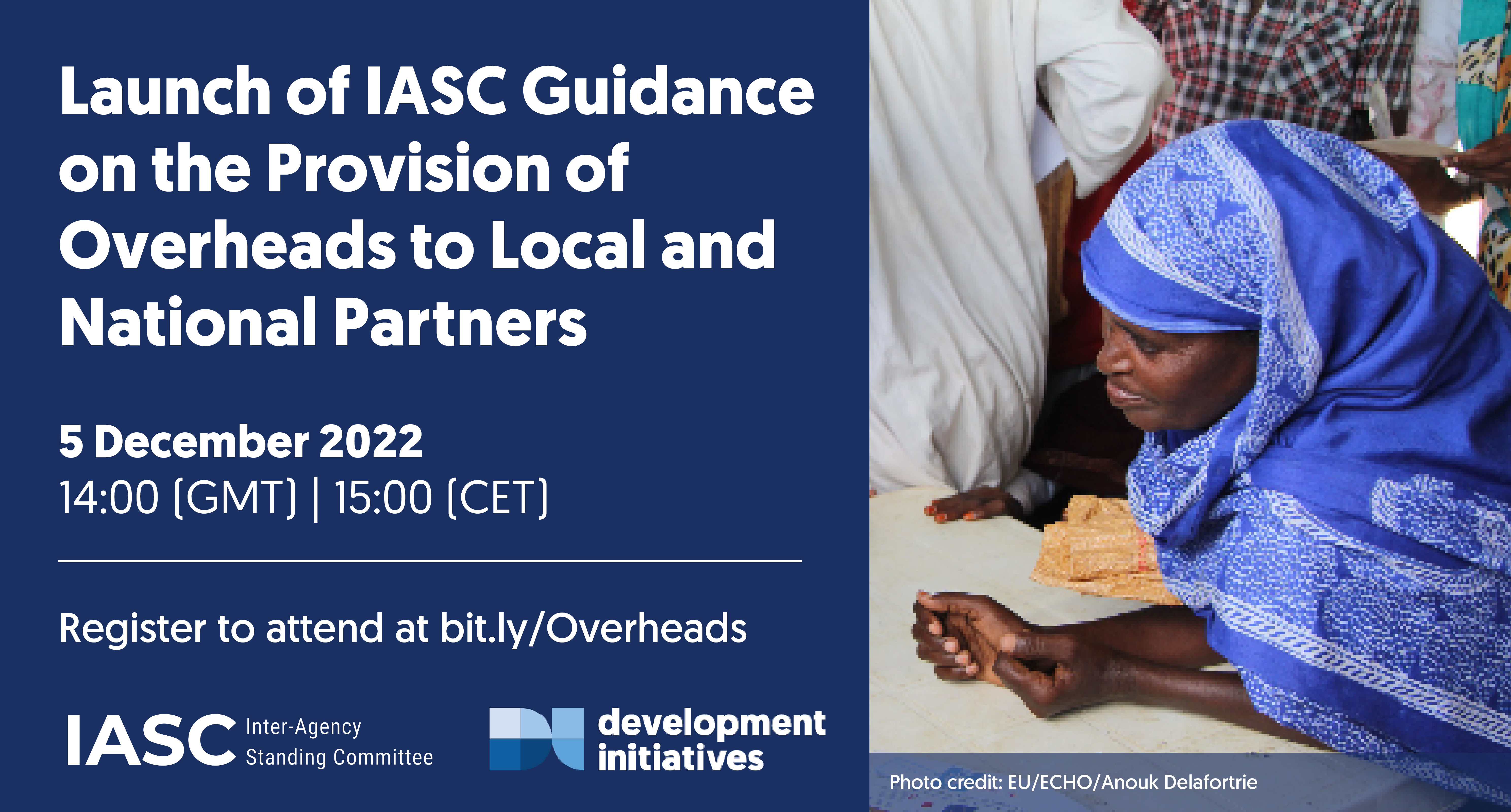
The Inter Agency Standing Committee (IASC) with Development Initiatives (DI) are pleased to invite you to the launch of the IASC Guidance on the Provision of Overheads to Local and National Partners.
It is critical that local actors have access to overhead funding for effective humanitarian response. The aim of this launch is to share the newly endorsed IASC Guidance on the Provision of Overheads to Local and National Partners. The development of the guidance note was informed by research carried out by the IASC Results Group 5 and the implementation will be led by the IASC Task Force 5 on Localisation. We will explore:
- Why overheads are important
- What the current state of play is around the provision of overheads to local actors
- Overview of what the guidance offers
- Discussion on the changing industry standard
Opening Remarks:
- Ms. Mervat Shelbaya, Head, Inter-Agency Standing Committee (IASC) secretariat
- Mr. Jan Egeland, Grand Bargain Eminent Person
Panelists:
- Ms. Virginie Leferve, Program & Partnerships Coordinator, Amel, Lebanon
- Mr. Rob Hurt, Deputy Director of the Division of Strategic Planning and Results, UNHCR
- Mr. Bill O’Keefe, Executive Vice President, Mission, Mobilization & Advocacy, CRS
- Mr. Pascal Richard, Deputy Head, Humanitarian Multilateral Affairs Unit, Swiss Agency for Development & Cooperation
Closing Remarks by IASC TF5 co-chairs:
- Ms. Segolene Adam, Chief, Humanitarian Policy Section, UNICEF and
- Ms. Gloria Soma, Director, Titi Foundation
Moderator:
- Oxfam
IASC Briefing on the 77th UN GA Inter-Governmental Processes and Humanitarian Resolutions
Monday, 17 October 2022

Photo credit: UN Photo/Manuel Elias
The briefing will be an opportunity to provide an update on the outcome of intergovernmental processes and the negotiations of a number of humanitarian resolutions during the 77th session of the UN General Assembly.
Speakers:
- Ms. Anastasia Carayanides, Chief, Inter-Governmental Policy Section, with Office for the Coordination of Humanitarian Affairs (OCHA)
Moderator:
- Ms. Samantha Newport, Deputy Head, Inter-Agency Standing Committee (IASC) secretariat
IASC Operational Briefing on Ukraine with Ms. Denise Brown, Resident and Humanitarian Coordinator in Ukraine
Thursday, 20 October 2022
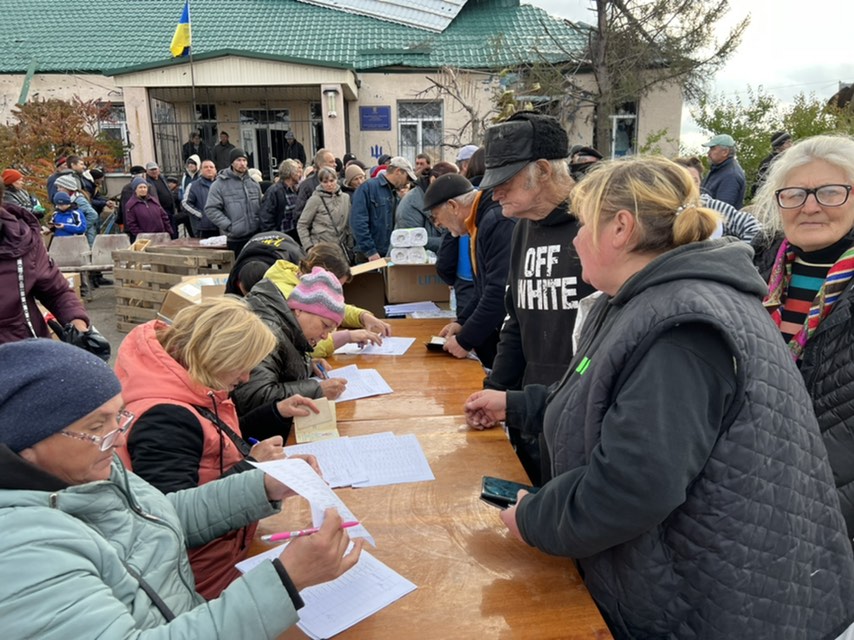
Photo: OCHA/Oleksii Shaidenkov
The briefing will be an opportunity for an interactive exchange with IASC members on the humanitarian situation and operational priorities in Ukraine.
Speakers:
- Ms. Denise Brown, Resident and Humanitarian Coordinator in Ukraine
Moderator:
- Mr. Stephen O’Malley, Director, IASC Peer-to-Peer Project
IASC Briefing on Good Practices in Operationalizing Collective Approaches to Accountability to Affected Populations
Tuesday, 8 March 2022

An accountable humanitarian system, where more decision-making power is in the hands of those affected by crises, is central to principled humanitarian action. Accountability to Affected People (AAP) ensures this action protects and restores human dignity and agency, remains relevant and effective and leaves no one behind.
AAP has been part of the humanitarian reform agenda for the last three decades. During that time, individual agencies, and the humanitarian sector as a whole, have made progress to improve and increase community engagement in country operations and through global commitments, guidance and tools. Nevertheless, more needs to be done to act on communities' feedback and needs, to deliver community-led, relevant, dignified and timely responses.
The objective of this briefing is to take stock of where the humanitarian system and IASC are on collective accountability, to draw attention, and propose concrete solutions, to areas where more progress is needed. It will also inform the documentation of case studies on good practices and lessons learned in AAP.
Speakers:
- Ms. Catherine Sozi, Humanitarian Coordinator for Ethiopia
- Ms. Layla Hasso, Communication & Advocacy Manager, Hurras Network, Syria and Turkey
- Ms. Alexandra Sicotte Levesque, Manager, Community Engagement, IFRC
- Ms. Dorina Andreev-jitaru, Regional Advisor, UNICEF
Moderator:
- Ms. Mervat Shelbaya, Head, Inter-Agency Standing Committee (IASC) secretariat
IASC Briefing on 76th UN GA Humanitarian Resolutions and Negotiations
Tuesday, 25 January 2022

Photo credit: UN Photo/Manuel Elias
The briefing will be an opportunity to provide an update on the outcome of intergovernmental processes during the 76th session of the UN General Assembly. The briefing will also provide an overview of the 2022 intergovernmental agenda, discuss the upcoming Secretary-General report on the coordination of humanitarian assistance, and inform participants on the 2022 ECOSOC HAS.
Speakers:
- Ms. Anastasia Carayanides, Chief, Inter-Governmental Policy Section, with Office for the Coordination of Humanitarian Affairs (OCHA)
Moderator:
- Mr. Ali Gokpinar, Humanitarian Affairs Officer, Inter-Agency Standing Committee (IASC) secretariat
IASC Briefing on Humanitarian Development and Peace Collaboration in Practice: Mapping Good Practices and Lessons Learned
Tuesday, 7 December 2021
Strengthening the humanitarian-development collaboration was identified by donors, NGOs, crisis-affected States and other stakeholders as a top priority at the World Humanitarian Summit (WHS). Five years since the World Humanitarian Summit, there is an increasing body of experience in implementing nexus approaches. However, good practices and lessons learned generated at the country level, do not have a platform to ensure knowledge transfer between country operations and/or at the global level. Recognizing this gap, the Inter-Agency Standing Committee (IASC) conducted a mapping of good practice in the implementation of the nexus in more than 15 contexts producing a synthesis report and country briefs.
This briefing will be an opportunity to discuss the findings and recommendations of the IASC Mapping of Good Practice in the Implementation of Humanitarian-Development Peace Nexus Approaches, Synthesis Report. It will also be an opportunity to consider the next steps to ensure successful nexus approaches and take stock of the support provided by the IASC to humanitarian-development collaboration.
Speakers:
- Ms. Irena Vojackova-Sollarano, Deputy Special Representative of the Secretary-General, Resident and Humanitarian Coordinator in Iraq
- Mr. Matthias Naab, Resident and Humanitarian Coordinator in Cameroon
- Ms. Wafaa Saeed, Director a.i, Coordination Division, OCHA
- Mr. Issack Maalim, Director, Nexus Platform, Nexus Somalia Consortium
Moderator:
- Ms. Mervat Shelbaya, Head, Inter-Agency Standing Committee (IASC) secretariat
IASC Dialogue on Principles for Peace: An Exchange between Humanitarian Leaders and the International Commission on Inclusive Peace
Wednesday 6 October 2021

The International community faces an era of alarming, prolonged and recurrent conflict. the persistent increase in violent conflicts underlines the pressing need to re-imagine and reshape our collective approaches to building and sustaining peace while also considering decades of experience from principled humanitarian action.
This dialogue will provide an opportunity for an exchange on the development of principles for peace. it will contribute to taking stock of key lessons learned and best practices from the humanitarian community's decades of experience working at the intersection of humanitarian and peace issues.
Speakers:
- Mr. Ramesh Rajasingham, Deputy Emergency Relief Coordinator and Assistant Secretary-General ai.
- Mr. Bert Koenders, Co-chair, International Commission on Inclusive Peace, and former Minister of Foreign Affairs for the Netherlands
- Ms. Najat Rochdi, Deputy Special Coordinator, Humanitarian and Resident Coordinator for Lebanon
- Mr. Yves Daccord, Co-chair of International Commission on Inclusive Peace, and former Director-General of International Committee of the Red Cross
- Ms. Hiba Qasas, Head of Secretariat, Principles for Peace Initiative
Moderator:
- Ms. Mervat Shelbaya, Head, Inter-Agency Standing Committee (IASC) secretariat
Photo: Principles for Peace Initiative 2019-2021
IASC Briefing on Systemwide Efforts to Prevent Famine and Address Food Insecurity
15 June 2021
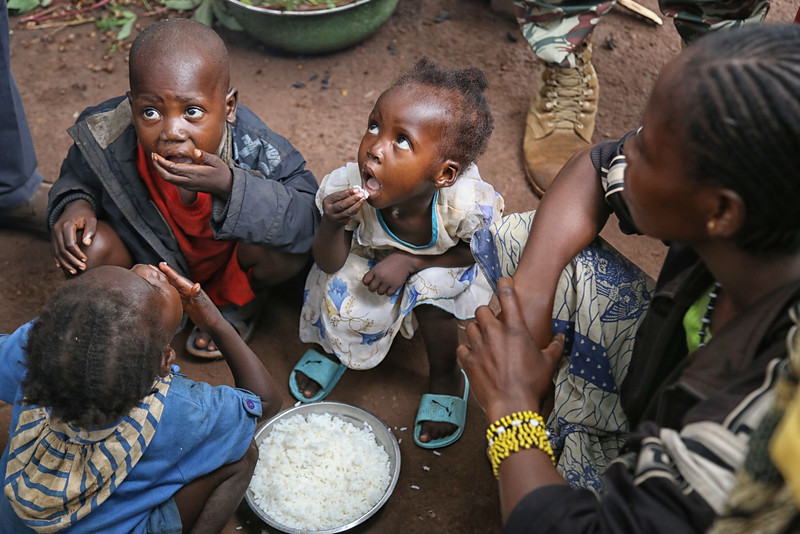
Acute hunger projections for 2021 are alarming. According to WFP and FAO estimates, 155 million people in 55 countries are experiencing crisis levels of food insecurity. Approximately 133,000 people have already reached catastrophic levels of food insecurity and more than 34 million people around the world are facing emergency levels of acute food insecurity. Without urgent action, they risk falling into famine or famine-like conditions.
This briefing is an opportunity to highlight urgent action required to avert famine and response efforts already underway including through the UN Secretary-General’s High-Level Panel on the Prevention of Famine, and what more needs to be done to address food insecurity in humanitarian settings.
Speakers:
- Mr. Dominique Bourgeon, Director, Food and Agriculture Organization (FAO) Liaison Office with the United Nations Office in Geneva
- Mr. Gian Carlo Cirri, Deputy Director of Global Office, World Food Programme (WFP)
- Ms. Esther Watts, Country Director, Ethiopia, CARE
- Mr. Martien van Nieuwkoop, Global Director for the Agriculture and Food Global Practice, World Bank
Moderator:
- Ms. Mervat Shelbaya, Head, Inter-Agency Standing Committee (IASC) secretariat
Photo:MINUSCA/Nektarios Markogiannis
IASC Briefing on Best Practices and Lessons Learned: Adaptation of Public Health and Social Measures for COVID-19 in Low Capacity and Humanitarian Settings
17 May 2021
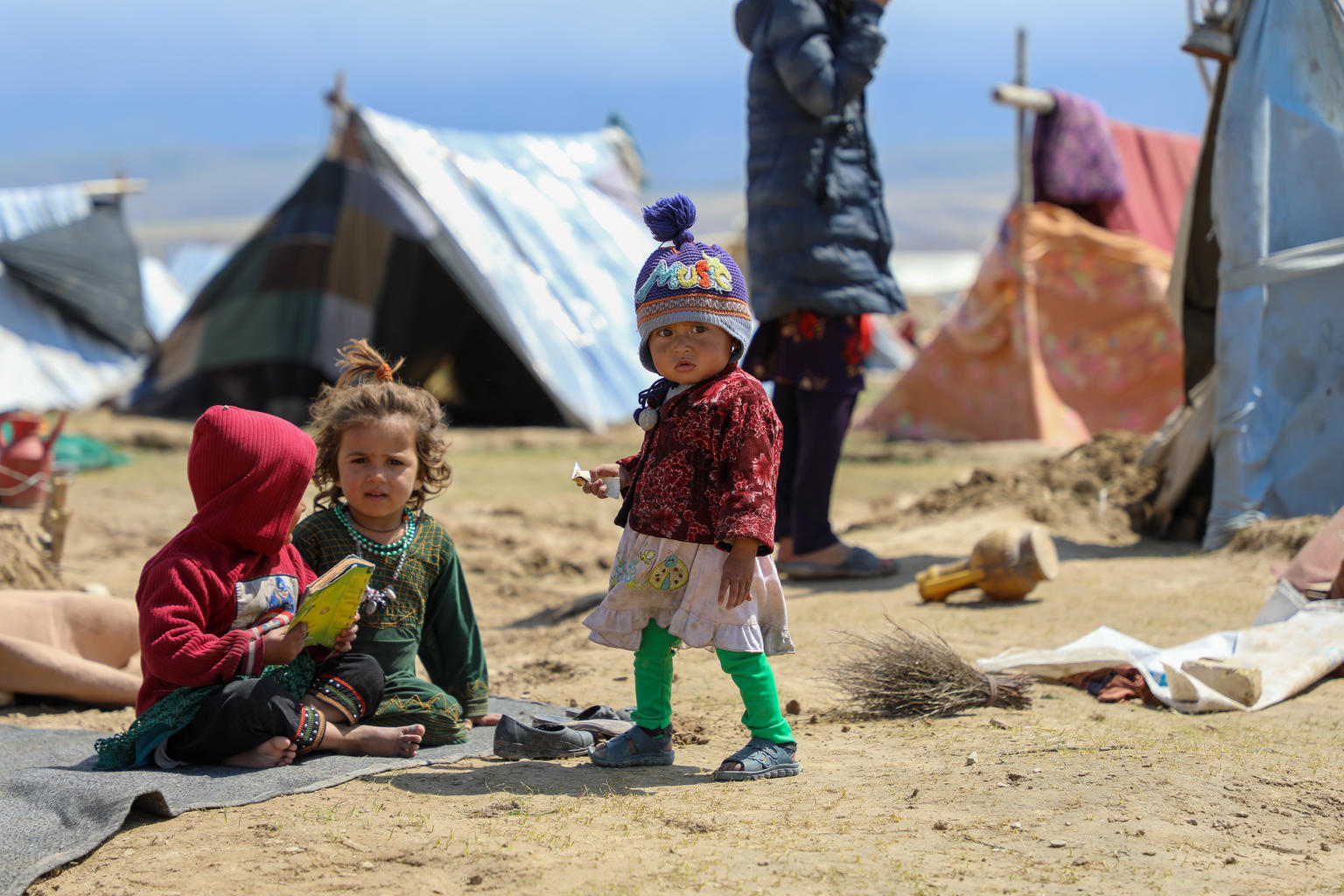
COVID-19 heightened the vulnerabilities and needs of populations living in low capacity and humanitarian settings. Prevention and control measures such as tracing, testing and isolation as well as the implementation of critical hygiene measures have been more challenging to implement, particularly in densely populated areas such as IDP and refugee camps, as well as urban areas, including informal settlements. As such, the necessity to adapt the humanitarian response to the new operating environment due to the COVID-19 pandemic was heightened over the course of the past year. In support of these efforts, the IASC produced the IASC Interim Guidance on COVID-19: Public Health and Social Measures for COVID-19 Preparedness and Response Operations in Low Capacity and Humanitarian Settings with innovative and context-specific solutions to prevent the spread of the virus to vulnerable communities and containing its spread, and sustain lifesaving humanitarian assistance and protection.
This briefing is an opportunity to reflect on lessons learned and best practices in preparing for and responding in low resource and humanitarian settings. It will also be an opportunity to reflect on how the IASC Interim Guidance is being applied.
Speakers:
- Mr. Samir Elhawary, Deputy Humanitarian Coordinator, Venezuela
- Ms. Fatima Askira, Executive Director, BOWDI, Nigeria
- Mr. Altaf Musani, Director of Health Emergency Interventions, WHO
Moderator:
- Ms. Mervat Shelbaya, Head, Inter-Agency Standing Committee (IASC) secretariat
Photo: UNICEF/Fazel
IASC Briefing on Data Responsibility in Humanitarian Action
8 March 2021

The briefing was a forum to discuss digital dilemmas and challenges as well as opportunities and solutions in data responsibility, which aims to ensure safe, ethical and effective management of data in support of humanitarian response. It was also a chance to brief on the recently released IASC Operational Guidance on Data Responsibility in Humanitarian Action.
Speakers:
- Ms. Adelina Kamal, Executive Director of the AHA Centre, ASEAN
- Dr. Asha Mohamed, Secretary-General of the Kenyan Red Cross
- Mr. Stuart Campo, Team Lead for Data Responsibility at OCHA's Centre for Humanitarian Data and Co-lead of IASC Results Group 1 Data Responsibility Sub-Group
Moderator:
- Ms. Mervat Shelbaya, Head, Inter-Agency Standing Committee (IASC) secretariat
Photo: Getty Images
IASC Briefing on Strengthening the Participation, Representation and Leadership of Local Actors in Humanitarian Coordination
28 January 2021

Photo: Vanuatu Business Resilience Council
Local actors, including civil society organizations, government, the private sector, and importantly, affected communities as well, are critical in every humanitarian operation. Working with and investing in local actors as equal and strategic partners is a priority for the humanitarian response and the leadership of humanitarian operations. Localisation is a vital element for strengthening the effectiveness and efficiency of humanitarian assistance by recognizing the dignity and security of people in need.
The objective of the briefing is to review progress made to date on localisation and identify the impediments in specific contexts and at various levels, including what can be done to resolve them. It will also be an opportunity to facilitate exchange of best practices and experiences. This builds on the guidance endorsed by the IASC Principals in May 2020, IASC Interim Guidance on Localisation and the COVID-19 Response.
Speakers:
- Mr. Ahmed Abdinasir Mohamed, Deputy Director/Head of Programs for Save Somali Women and Children & Chair of the Localization and Partnership working group in the Somalia NGO Consortium (SNC)
- Mr. Mark Cutts, Deputy Regional Humanitarian Coordinator for the Syria Crisis
- Mr. Divine Arrey, Humanitarian Affairs Officer, OCHA Cameroon
- Ms. Stella Ogunlade, Chief of the NGO and Civil Society Unit, UNHCR & co-Chair of the IASC Results Group 1 on Operational Response Sub-group on Localisation
Moderator:
- Ms. Mervat Shelbaya, Head, Inter-Agency Standing Committee (IASC) secretariat
IASC Briefing on the Inter-Agency Humanitarian Evaluation on Gender Equality and the Empowerment of Women and Girls
10 December 2020
The Inter-Agency Humanitarian Evaluation (IAHE) on Gender Equality and the Empowerment of Women and Girls (GEEWG) provides an independent assessment of the degree to which GEEWG has been implemented and integrated within IASC humanitarian responses since 2017. It identifies gaps, best practices and lessons learned to further integrate GEEWG. This IASC briefing was an opportunity to hear from evaluation team members and discuss key findings, including what worked well, what can be improved and recommendations for strengthening gender equality in humanitarian response.
Speakers:
- Dr. Terrence Jantzi, Evaluation Team Leader for the IAHE for Gender Equality and the Empowerment of Women and Girls & Senior Evaluation Specialist for the KonTerra Group
- Ms. Mariangela Bizzarri, Senior Evaluation Consultant, Founder of GenderConsult
- Mr. Ali Buzurukov, Humanitarian Affairs Officer, OCHA's Strategic Planning, Evaluation and Guidance section
Moderator:
- Ms. Tanja Schuemer-Cross, Humanitarian Affairs Officer, IASC secretariat
IASC Briefing on the Inter-Agency Humanitarian Evaluations of the Drought Response in Ethiopia (2015-20180 and Response to Cyclone Idai in Mozambique (2019)
23 November 2020
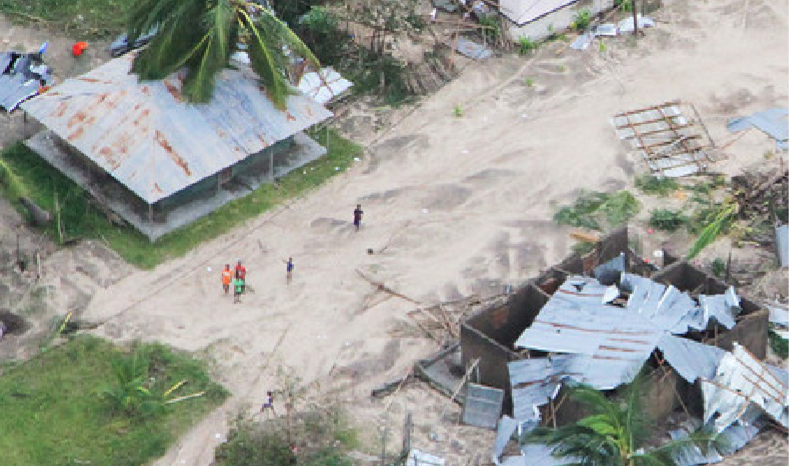
Inter-Agency Humanitarian Evaluations (IAHE) provide independent assessments of the collective humanitarian response of IASC member organizations. IAHEs evaluate the extent to which planned collective results have been achieved and how humanitarian reform efforts have contributed to that achievement. This IASC briefing will bring together the IAHE team leaders of the Drought Response in Ethiopia (2015-2018) and the Cyclone Idai Response in Mozambique (2019) to present the common findings and discuss what worked well, what needs to be improved and recommendations for moving forward.
Speakers:
- Ms. Kelly David, Chair of the IAHE Steering Group & Chief of OCHA's Strategic Planning, Evaluation and Guidance section
- Dr. Julia Steets, Evaluation Team Leader for the IAHE in Ethiopia & Director of the Global Public Policy Institute (GPPi)
- Mr. Jock Baker, Evaluation Team Leader for the IAHE in Mozambique & Independent Consultant
Moderator:
- Ms. Tanja Schuemer-Cross, Humanitarian Affairs Officer, IASC secretariat
Photo: Saviano Abreu/OCHA
IASC Briefing to Update on UNGA 75th Humanitarian Resolutions and Intergovernmental Processes
12 November 2020

Following up the previous briefing on 3 September 2020, this briefing will be an opportunity for Ms. Carayanides to provide an update on humanitarian resolution negotiations and intergovernmental processes during the 75th session of the UN General Assembly, and to inform participants on the 2021 ECOSOC HAS.
Speakers:
- Ms. Anastasia Carayanides, Chief, Inter-Governmental Policy Section, OCHA
© UN Photo/Manuel Elías
IASC Briefing on Public Health and Social Measures for COVID-19 Preparedness and Response Operations in Low Capacity and Humanitarian Settings
6 November 2020
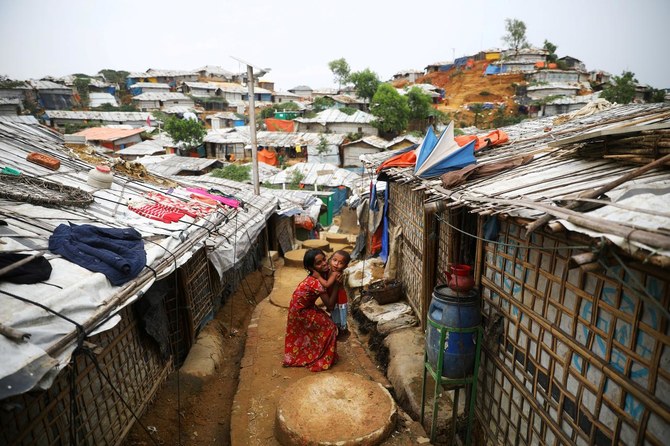
COVID-19 has heightened the particular vulnerabilities and needs of populations living in low capacity and humanitarian settings. Prevention and control measures such as tracing, testing and isolation as well as the implementation of critical hygiene measures have been more challenging to implement, particularly in densely populated areas such as IDP and refugee camps, as well as urban areas, including informal settlements and slums. In recognition of these challenges, the IASC Principals endorsed the IASC Interim Guidance on COVID-19: Public Health and Social Measures for COVID-19 Preparedness and Response Operations in Low Capacity and Humanitarian Settings in May 2020, which sets out a seven-step framework to adapt public health and social measures to reduce COVID-19 transmission and facilitate the detection and management of infected and exposed individuals.
This IASC briefing will bring together expert panelists to discuss the challenges being faced on the ground and the concrete actions that have been taken to address them.
Speakers:
- Ms. Khardiata Lo N'Diaye, RC/HC a.i., Niger
- Mr. Zakayo Kalebo, Programs Manager, World Vision
- Dr. Hur Amer, Head of Medical Committee, Dary, Iraq
- Ms. Renee (Reinhilde) Van de Weerdt, Chief of Emergency Management and Support & EDG member, WHO
Moderator:
- Ms. Mervat Shelbaya, Head, Inter-Agency Standing Committee (IASC) secretariat
Photo: Reuters
IASC Briefing on Funding the Front Lines: Efforts to Unlock and Disburse Funds in the COVID-19 Response
13 October 2020

COVID-19 has created a multi-dimensional crisis, with significant socio-economic impacts; food security, education and protection, among other issues of concern. NGOs are at the forefront of the COVID-19 response, especially local and national NGOs who play a crucial role in responding to the crisis, given their knowledge of the context and familiarity with the needs. The IASC is committed to supporting their efforts including by making available funds fast and at scale to enable them to respond to urgently needed humanitarian assistance and protection. This briefing provided an opportunity for discussion on some of challenges faced and efforts underway to address them.
Speakers:
- Mr. Win Tun Kyi, National Director, Karuna Mission Social Solidarity
- Ms. Anita Kattakuzhy, Humanitarian Policy Adviser, Oxfam
- Mr. Robert Hurt, Head of the Implementation Management and Assurance Service, UNHCR
- Ms. Alice Sequi, Chief, Pooled Fund Management Branch, OCHA
- Mr. Hong-won Yu, Counselor, Humanitarian Affairs, Permanent Mission of Canada to the United Nations in Geneva
Moderator:
- Ms. Mervat Shelbaya, Head, Inter-Agency Standing Committee (IASC) secretariat
Photo: WHO
Briefing to Update on UNGA 75th Humanitarian Resolutions and Intergovernmental Processes
3 September 2020
This briefing provided an update on the forthcoming negotiations of a number of UNGA 75th humanitarian resolution negotiations and intergovernmental processes. The discussions also included a brief stock-take and opportunity for review of the 2020 ECOSOC Humanitarian Affairs Segment and provide an update on the 2021 ECOSOC HAS.
Speakers:
- Ms. Anastasia Carayanides, Chief, Inter-Governmental Policy Section, OCHA
IASC Briefing on the Impact of COVID-19 on Women and Girls
8 July 2020

Throughout the COVID-19 pandemic, women and women’s civil society have been critical frontline responders and leaders in humanitarian response efforts. Yet, the public health emergency has had a disproportionate impact on women and girls. COVID-19 has exacerbated pre-existing inequalities and resulted in alarming health and economic impacts for women and increased risk of gender-based violence. With over 200 participants, this webinar explored those impacts and strengthened understanding of gender issues in humanitarian action through real stories on the ground, shared by expert panelists. The webinar also explored the global, regional and field efforts to address these gender concerns, including tools such as the IASC Interim Guidance: Gender Alert for COVID-19 Outbreak, a product developed by the IASC Reference Group on Gender and Humanitarian Action.
Speakers:
- Ms. April Pham, Senior Gender Advisor and Head of Gender Unit for UN OCHA & co-Chair of the IASC Reference Group on Gender in Humanitarian Action
- Ms. Julie Lafrenière, Gender Team Leader for the Global Humanitarian Team at Oxfam & co-Chair of the IASC Reference Group on Gender in Humanitarian Action
- Ms. Razia Sultana, Rohingya human rights lawyer and Executive Director of the Rohingya Women Welfare Society (RWWS), a UNWomen partner in Cox’s Bazar
- Ms. Joane Cremesty, Gender Advisor at Oxfam, Lebanon
Moderator:
- Ms. Mervat Shelbaya, Head, Inter-Agency Standing Committee (IASC) secretariat
IASC Briefing on the Integration of Mental Health and Psychosocial Support in COVID-19 Response
26 June 2020 
The webinar provided over 160 participants with an overview of tools developed by the IASC Reference Group on Mental Health and Psychosocial Support in Emergency Settings (chaired by WHO and IFRC) to support the COVID-19 response. It also featured presentations from co-chairs of two country-level MHPSS Technical Working Groups in Afghanistan and Nigeria about their experience scaling up support on the ground with these tools.
Speakers:
- Dr. Fahmy Hanna, Co-Chair of the IASC MHPSS Reference Group & Technical Officer for the World Health Organization Department of Mental Health and Substance Use, Geneva
- Ms. Sarah Harrison, Co-Chair of the IASC MHPSS Reference Group, Technical MHPSS Advisor, IFRC Reference Centre for Psychosocial Support, Copenhagen
- Ms. Nadia Jabarkhail, Coordinator of the MHPSS Technical Working Group in Kabul, Action Against Hunger
- Ms. Deborah Magdalena, Coordinator of the MHPSS Technical Working Group in Maiduguri, International Organization for Migration
Moderator:
- Ms. Mervat Shelbaya, Head, Inter-Agency Standing Committee (IASC) secretariat
IASC Briefing on the Emergency Response and Preparedness Approach in COVID-19
16 June 2020

The ERP approach was adopted by the IASC in 2015 with the IASC Emergency Response Preparedness Guidelines, as the agreed method to ensure readiness to respond to potential crises requiring coordinated action from the humanitarian community. In response to the global outbreak of COVID-19, the IASC built on those guidelines and developed the Interim Guidance on the Emergency Response Preparedness Approach to the COVID-19 Pandemic; a short and technical step-by-step guide. In this webinar, expert panelists provided an overview to more than 130 participants on the interim guidance and examples of its field application, including a presentation on how national actors are tackling this in Bangladesh.
Speakers:
- Mr. John Long, Head of OCHA's Emergency Response Preparedness Unit in Geneva, Switzerland, and Co-chair of the Preparedness, Early Action and Readiness Sub-Group of IASC Results Group 1 on Operational Response.
- Dr. Ehsanur Rahman, Executive Director of the Dhaka Ahsania Mission, a multi-sector national NGO in Bangladesh, and Chairperson of the National Alliance of Humanitarian Actors in Bangladesh (NAHAB).
Moderator:
- Ms. Mervat Shelbaya, Head, Inter-Agency Standing Committee (IASC) secretariat
IASC Briefing on the Joint System-Wide Operational Guidance on Data Responsibility and Challenges during the COVID-19 Response
22 May 2020
Data responsibility—the safe, ethical, and effective management of data—is a critical issue for the humanitarian sector to address and the stakes are high. Humanitarian organizations collect and share increasingly large volumes of data, however, as organizations process increasingly large volumes of data, they also face more complex challenges. This briefing provided an overview of progress to-date on the development of joint, system-wide operational guidance on data responsibility and a discussion on some of the key challenges and opportunities facing the humanitarian community vis-a-vis the management of data in the COVID-19 response and beyond.
Speakers:
- Ms. Kim Roberson, Chief of Field Information and Coordination Support Section, United Nations High Commissioner for Refugees (UNHCR)
- Mr. Stuart Campo, Team Lead for Data Policy, OCHA Centre for Humanitarian Data
- Mr. Robert Trigwell, Global Displacement Tracking Matrix (DTM) Support Team, International Organization for Migration (IOM)
Moderator:
- Ms. Mervat Shelbaya, Head, Inter-Agency Standing Committee (IASC) secretariat
IASC Briefing on Protection from Sexual Exploitation and Abuse (PSEA) Including Challenges during COVID-19 Response
7 May 2020

As seen in previous public health emergencies, a scale-up in humanitarian response increases the protection risks that women and children face and the risk of sexual exploitation and abuse. With over 400 participants, this webinar looked at how the humanitarian community is working to reduce these risks and support the most vulnerable. An update on the initiatives and priorities of the IASC Champion on PSEA and sexual harassment, UNHCR, as well as IASC initiatives in support of field implementation was also presented.
Speakers:
- Ms. Diane Goodman, Senior Coordinator on PSEA and Sexual Harassment, United Nations High Commissioner for Refugees (UNHCR)
- Mr. Andreas Mlitzke, Director of Compliance, Risk Management and Ethics, World Health Organisation (WHO)
Moderator:
- Ms. Wendy Cue, Senior Coordinator on PSEA and Sexual Harassment, IASC secretariat, UN Office for the Coordination of Humanitarian Affairs (OCHA)
IASC Briefing on the Climate Crisis and Humanitarian Action: Bigger, Faster.. Better?
27 February 2020
This briefing convened frontline humanitarian actors to discuss how the humanitarian community is addressing the challenges of more severe, frequent and unpredictable disasters, and what humanitarians can do to better prepare and respond.
Speakers:
- Mr. Andrew Harper, Special Advisor on Climate Action, UNHCR
- Ms. Tessa Kelly, Climate Change Coordinator, IFRC
- Mr. Bruno Jochum, Fellow at the Geneva Centre for Security Policy (GCSP)
- Ms. Kathrine Vad, Environment and Climate Change Adviser, ICRC
- Mr. Harjeet Singh, Global lead on climate change, ActionAid
Moderator:
- Ms. Wendy Cue, Senior Coordinator on PSEA and Sexual Harassment, IASC secretariat, UN Office for the Coordination of Humanitarian Affairs (OCHA)


